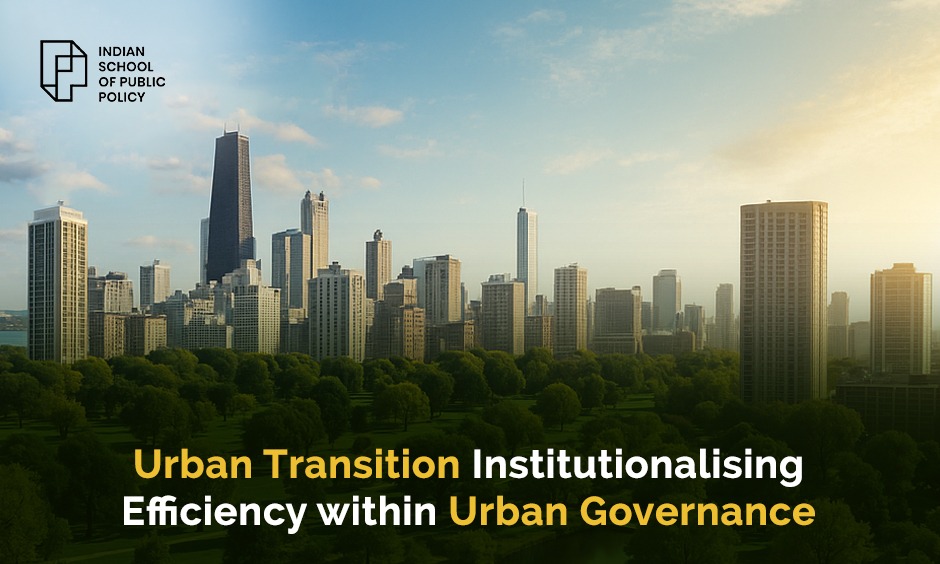Table of Contents
Urban Transition Institutionalising Efficiency within Urban Governance

It has been more than three decades since the attempt made to decentralize planning and development at the local government level through the 74th constitutional amendment. The constitution of India has placed the responsibility for urban development on the state governments.
The amendment sought to change this by giving municipalities constitutional status, mandating regular municipal elections and empowering them with 18 functional responsibilities, besides envisioning ward committees and district planning committees.
The functional responsibilities include planning for economic and social development, water supply, public health, sanitation, solid waste management, urban amenities, roads and bridges, land use planning to name a few.
This attempt to decentralize the government to the lowest level is a step for efficient, localised service delivery, giving voice to the local community and setting up accountability. The 10000+ defined and undefined cities and towns which are looked up as growth engines should be ready and prepared to be on the drivers seats of the economic growth of the country as a whole.
At a recent WRI conference Connect Karo on September 2-3, governance and institutionalising Reforms in the service delivery systems of the government was discussed. An interesting example from Odisha stood out which demonstrates urban governance done right. It is the corporatisation of water services under WATCO (Water Corporation of Odisha), which provided functional autonomy and operational flexibility to the corporate entity, thus ensuring customer centric service delivery. This is due to the enabling public policy initiatives of the Odisha State Government.
Through this embedding of accountability under the Right to Public Services framework, WATCO ensures that if a new household water connection is not provided within seven days, the citizen is entitled to compensation. This shifts responsibility from the citizen to the state, signalling a fundamental change in governance ethos. Besides, the ‘Drink from Tap’ initiative ensures round-the-clock safe water, with quality checks and community outreach through Jalasathi women’s groups. Further, by targeting 100% metering of household connections, WATCO aims to eliminate non-revenue water caused by leakages and wastage, ensuring both conservation and full cost recovery.
It was discussed in the seminar that these reforms have reframed water not as a privilege or a political favour but as a guaranteed public right, delivered through professional, transparent, and accountable systems.
WATCO is a successful and scalable example of efficient, revenue-generating service delivery built on a self-governing model where all stakeholders, from plumbers to policymakers, work within a unified system, supported by Odisha Water Academy for training and capacity building.
Similar efforts are emerging across India: the newly created Greater Bengaluru Authority, for instance, seeks to consolidate fragmented service delivery under one roof to optimise scarce resources, while the National Urban Policy envisions city and state-level plans as the true drivers of growth and governance, with the Union government playing the role of facilitator.
However, more of such initiatives are required to bring about a shift in India’s urban governance from fragmented towards more unified, efficient, and accountable models.
The task ahead is to design governance models that are less fragmented, more accountable, and capable of delivering efficient services, so that Indian cities can truly become both engines of growth and spaces of dignity and democracy.




